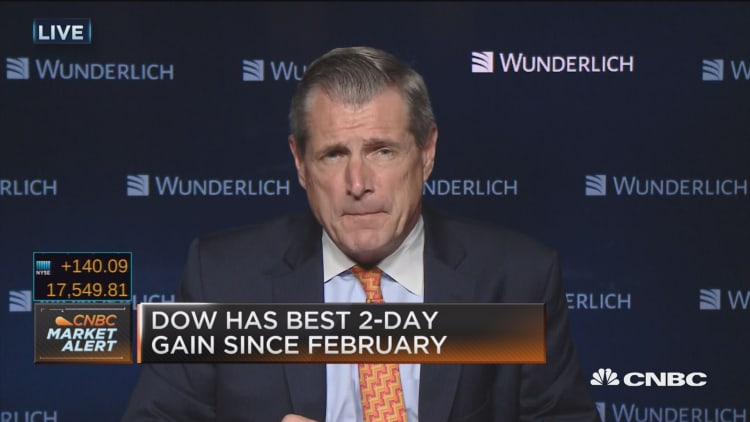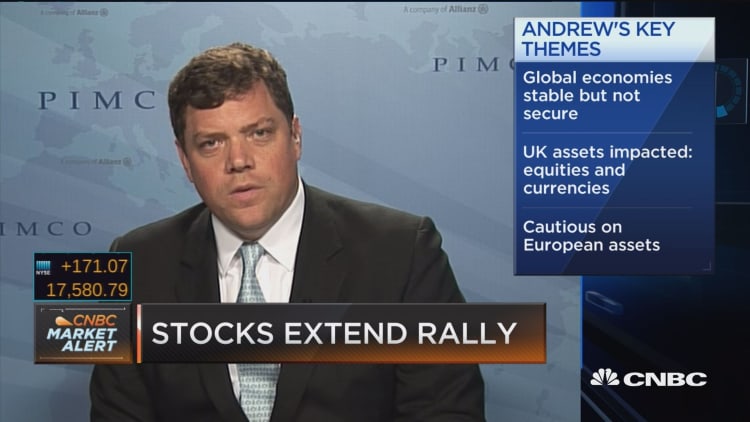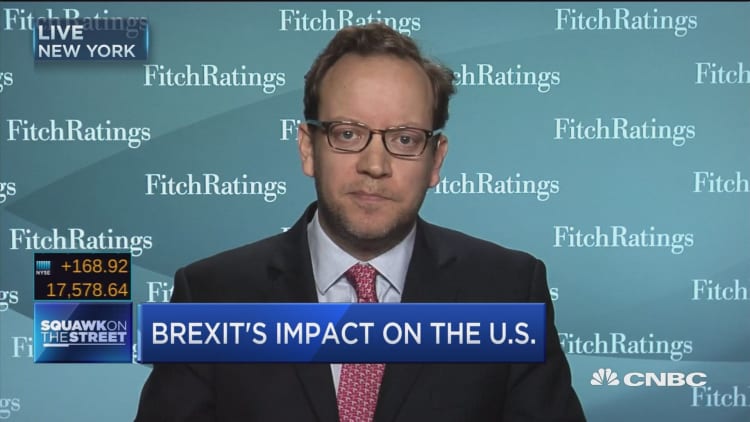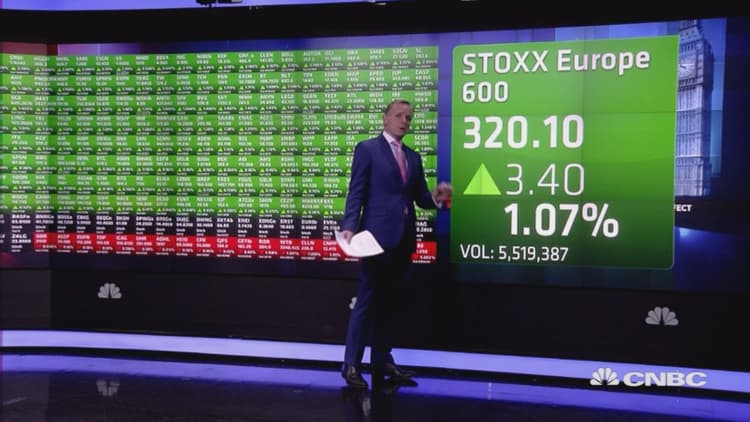


Some investors are worried there is more risk to the downside, even as the Nasdaq has recovered about half of its losses after the U.K. vote last week to leave the European Union.
But Ben Mandel, global strategist at JPMorgan, told CNBC's "Squawk on the Street" on Wednesday that there is a "set of two shock absorbers which mitigate the effect for the U.S. in particular."
The first is that "cyclical strength is reasonably good," according to Mandel, who cited the resilience of the consumer and the labor market. He also said that central banks are going to have "an aggressive response" especially from the Bank of England and the European Central Bank.
"I think the [Bank of Japan] is forced to act some time this summer. For its part, the [Federal Open Market Committee] is probably on hold until December. So you have this ubiquitous tack towards monetary easing, which cushions the blow," Mandel said.
Art Hogan, chief market strategist at Wunderlich Securities, told "Squawk on the Street" that the market move was "obviously an overshoot in the short run." He said that in the near term, the markets will see a little more stability than they've seen in the last few days.
"Until and unless we know how this plays out — and we won't for quite some time — I think we're probably at a point in time where we can slow down and stop the panic," Hogan said.

Andrew Balls, chief investment officer at Pimco, told "Squawk on the Street" that despite the "profound uncertainty," he thinks the markets are pricing the situation correctly.
"There are some spillover risks, but it's largely a U.K. event," he said, adding that the market is "about as good as it could be."
Wunderlich's Hogan also cautioned investors on defensive plays, which he said "look pretty elevated here." Hogan said to keep an eye on the multiple on consumer staples, telecoms and utilities, "the safe harbors that have gotten very expensive."
Balls said that going forward, the U.K. banks and high-quality credit look interesting. He added that "the backdrop could be positive for emerging markets," which could benefit from "easing on the part of central banks or a slower path for the Fed."


